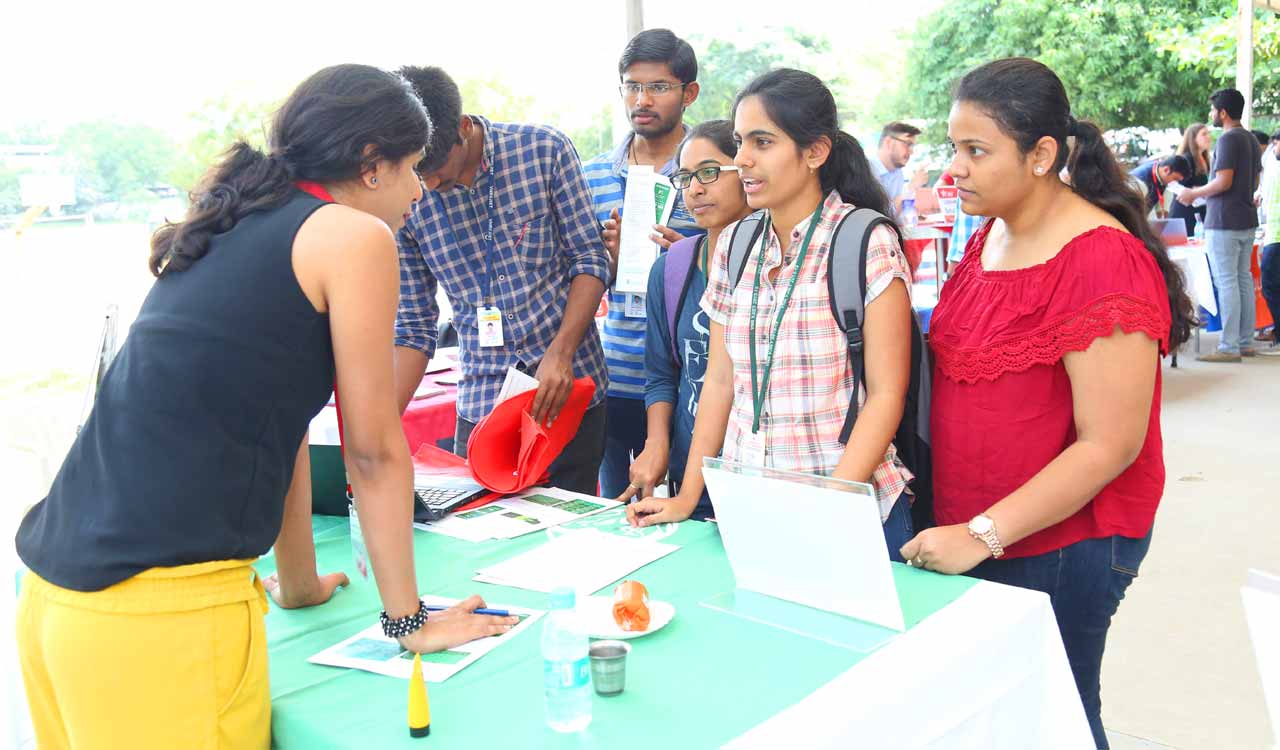Your First Steps in the US: Navigating Support Services for International Students
Here are some helpful tips and strategies to help students succeed and fully embrace their academic journey in the United States.

Embarking on an academic journey in the United States as an international student is exciting and challenging. According to the IIE’s Open Doors Report, the United States hosted over 1,126,690 international students in 2023-24, accounting for approximately 6% of the total student population. To ensure a smooth transition, it is essential to understand the pivotal tasks that await students, right from when they land in the United States until they land in the university of their choice.
Here are some tips and tricks to help students thrive and make the most of the student journey in the United States.
The International Student Services Office (ISSO):
This office assists students with immigration matters, including the maintenance of their student status, work authorization (like CPT/OPT), cultural adjustments, and the processing of necessary documents. It also organizes special orientation sessions to familiarize students with the campus, academic setting, and cultural expectations in the United States.
The ISSO also helps students with orientations regarding banking and communications in the United States. There are ample opportunities to engage in local events that see both domestic and international students’ participation, fostering a sense of community and helping students connect socially in their new homes.
Academic Support Services:
There are various services offered at U.S. campuses to help students achieve academic success through tutoring and writing centers, counseling, and free or reduced public transportation passes. Additionally, workshops on essential topics like citation and referencing, academic writing, research support, goal setting, exam preparation and time management can help students navigate the academic expectations of U.S. universities.
It is also vital to seek the guidance of academic counselors, who can help students create and adhere to their education plan. Graduation requirements can differ across majors, so students must schedule regular meetings with their counselor to discuss academic goals and plans.
Health Services:
Health services at U.S. universities offer comprehensive care, including medical consultations, mental health counseling, and wellness programs. Students can access vaccinations, urgent care, or therapy sessions on campus. Students must learn about their school’s health insurance plan and how to access these services when needed.
Counseling services are available on campus to support mental and emotional well-being on U.S. campuses. Students can book individual sessions with counselors or attend support groups with peers facing similar issues, providing a platform and community for shared challenges. Most colleges offer low-cost or free mental health services on campuses.
Housing and Accommodation Office:
Between being accepted to an institution and traveling to the university, organizing housing (on or off-campus) is essential. Accommodation offices at U.S. universities assist students in finding on-campus and off-campus housing. They provide resources for dorm assignments, roommate matching, and accessible housing options. Students should contact housing office well in advance upon confirming their offer of admission, as they will often have strict deadlines.
Student Organizations and Cultural Clubs:
Students should consider stepping outside their comfort zone and join organizations and clubs on campus that match their interests. There are a host of clubs varying from academic to cultural to professional. But be wary of joining too many clubs as it may be challenging to balance all other priorities including academics.
Campus Security and Safety Workshops:
Students can visit the campus security office for safety information, security measures on campus, emergency procedures, and how to report issues in case of emergencies. Attending safety workshops and webinars is also crucial as these help students to go through campus resources and get personal safety advice.
Career Services:
Career centers assist students with resume writing, preparing for college interviews, and job search strategies. Students can attend career fairs and workshops to meet potential employers and learn about practical training opportunities for international students.
Disability Centers:
Disability centers at U.S. universities provide vital support for students with physical, learning, or psychological disabilities. They offer accommodations like assistive technology, extended test times, and accessible housing. These centers promote inclusivity, ensuring equal opportunities for academic success.
Arriving in the United States is an exciting chapter in a student’s journey as an international student filled with new opportunities and challenges. Students can stay on top of the game by leveraging campus resources, staying organized, and bearing the tips above in mind. Students and families can also contact the nearest EducationUSA center for more information before their journey as an international student.
Please visit the U.S.-India Educational Foundation’s website to learn more about studying in the United States: https://www.usief.org.in/Hyderabad.aspx
Phone/ WhatsApp: 91-8008465712/8008462560. Email: usiefhyderabad@usief.org.in | hyderabad@educationusa.org
– U.S. Consulate General Hyderabad
Related News
-
Student from Hanamkonda dies under suspicious circumstances in US
-
US Universities urge international students to return before Trump’s 2025 inauguration amid travel ban fears
-
UN experts urge US to end ‘double standards’ on Israel-Palestine conflict
-
Trump selects former soldier, Iraq War veteran to serve as Army secretary
-
Cartoon Today on December 25, 2024
6 hours ago -
Sandhya Theatre stampede case: Allu Arjun questioned for 3 hours by Chikkadpallly police
7 hours ago -
Telangana: TRSMA pitches for 15% school fee hike and Right to Fee Collection Act
7 hours ago -
Former Home Secretary Ajay Kumar Bhalla appointed Manipur Governor, Kerala Governor shifted to Bihar
7 hours ago -
Hyderabad: Organs of 74-year-old man donated as part of Jeevandan
7 hours ago -
Opinion: The China factor in India-Nepal relations
8 hours ago -
Editorial: Modi’s Kuwait outreach
8 hours ago -
Telangana HC suspends orders against KCR and Harish Rao
9 hours ago




